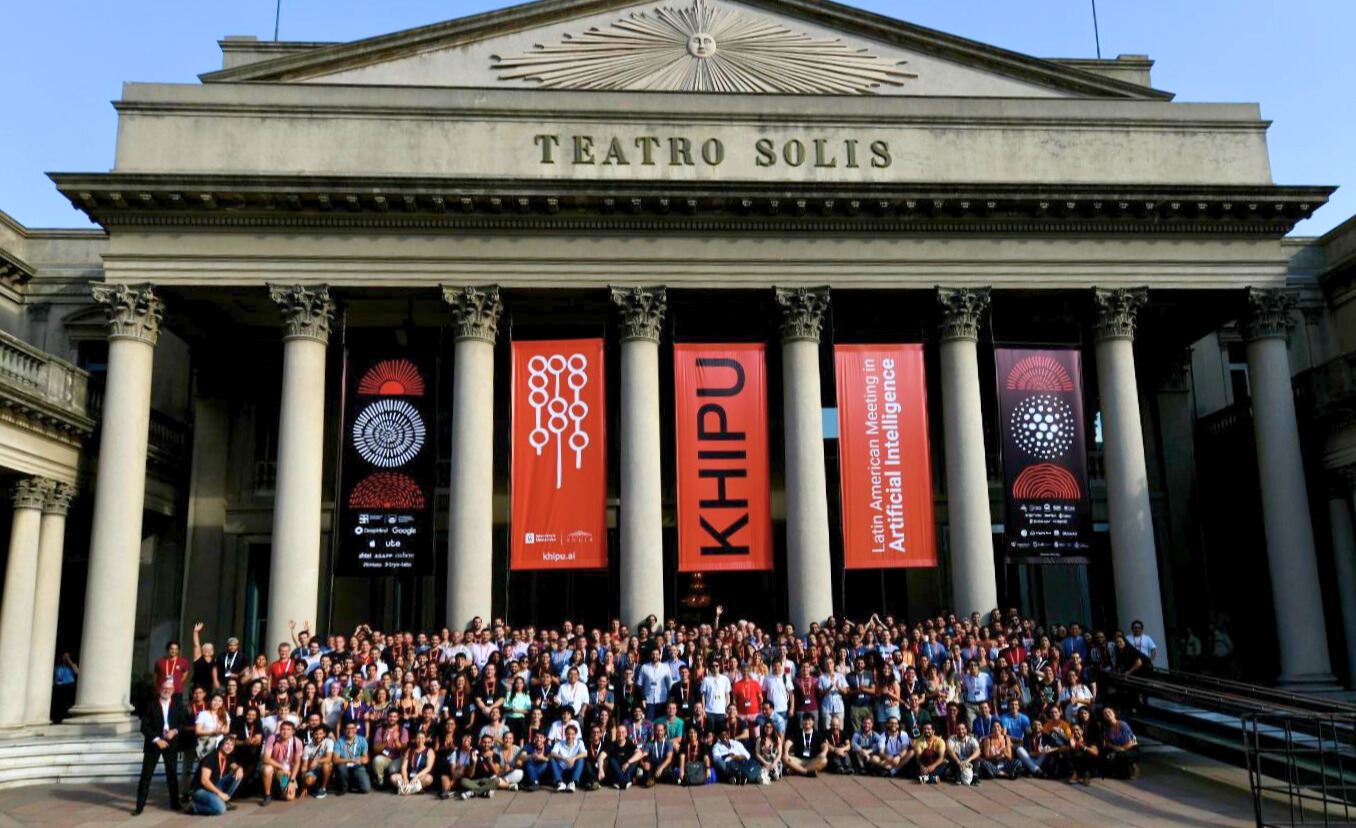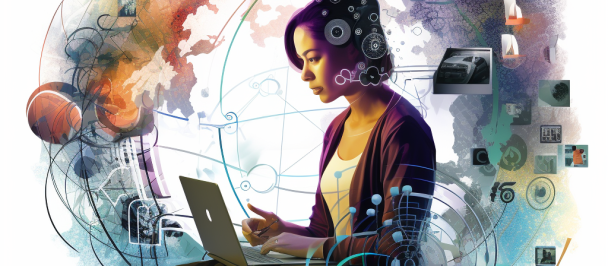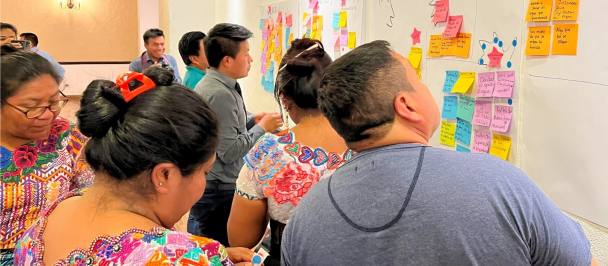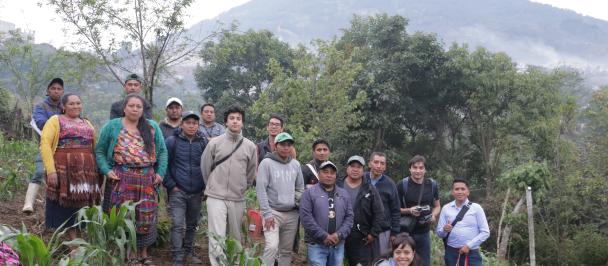Reflections from UNDP Guatemala on uplifting Latin American Meetings in Artificial Intelligence
27 de Abril de 2023

Closing event at Teatro Solis, Montevideo Uruguay
Artificial Intelligence (AI) is hardly a new concept. Its origins can be traced back to the 1950s when the term was first coined. However, it wasn't until the 21st century that AI began to have a significant impact on our daily lives.
In Latin America, one of the key convenings for supporting the advancement of Artificial Intelligence is Khipu, holding an annual event since 2019. This year, Guatemala’s UNDP Accelerator Lab was selected to participate in such event, following a selection process and based on its current work on generating and using evidence based on geolocated data for orienting environmental decision-making of central and local governments.
Khipu 2023 took place early March with three main objectives: to offer training in advanced machine learning topics, to strengthen the machine learning community by fostering collaborations, and to grow awareness around how AI may be used for the benefit of Latin America. The five-day gathering took place the Facultad de Ingenieria of the Universidad de la República, in Montevideo Uruguay, bringing together private, non-profit, civil society and academic institutions, fueled by a rich agenda that included keynote speakers, research talks, hands-on practical sessions, poster presentations and side events.
Advanced AI models, as presented, unpack new exciting avenues for a variety of applications. For instance, deep generative models, like Dalle-2 and Imagen, are AI systems that can create photorealistic images and art from a natural language text description. Reinforcement learning and large language models are agents trained to take the best actions in an environment to maximize a given reward in the long run. Such models have seen tremendous success on a wide range of challenging problems such as learning to play complex video games like Atari, and solving difficult problems with accuracy in a conversational way like ChatGPT.
As discussed during the event, when developing AI models there are known challenges. For instance, in deep generative models, a key challenge is knowing the true distribution and writing it down mathematically. In large language models, tasks that are challenging to tackle include the incorporation of specialized domain knowledge (like medicine and law), common sense reasoning, real-time processing and accounting for ethical and moral implications.
It turns out the there are usually tradeoffs to handle, including addressing accuracy (how generalizable an AI model is to unseen data), compression (how much computational resources it demands, like memory), interpretability (how understandable a model is), robustness (how vulnerable a model is to changes in data-distribution), and fairness (how a model should behave on sensitive features, like skin color or religion).
In Latin America, the adoption of AI has been slower compared to other regions of the world, where Central America and the Caribbean fall even more behind. Furthermore, the region is characterized by a strong presence of indigenous languages, which are inherent to its rich cultural diversity. In that regard, some AI language models can encounter further challenges, like languages being more spoken rather than written, and languages evolving or even fading over time.
Despite these challenges, there has been an increasing interest in AI-driven development in recent years in the region. Countries like Brazil, Mexico, Colombia, Uruguay, and Argentina have been investing in research and development to build their AI ecosystems. An example of such efforts is Uruguay’s AI Strategy for promoting and strengthening the responsible use of AI in public administration.
There also seems to be an increasing awareness for considering the environmental, social and ethical implications in the utilization and adoption of new technologies. A relevant undergoing effort presented aimed to understand the social impacts of Artificial Intelligence is EDIA (Estereotipos y Discriminación en Inteligencia Artificial, by its acronym in Spanish), which provides mechanisms for social scientists and domain experts in Latin America to explore biases and discriminatory stereotypes present in word embeddings and language models.
Furthermore, there are already stablished global AI communities (such as HuggingFace) where private, academia, non-profit and civil society converge, enabling an ecosystem for building, training and deploying state of the art AI models in an open and collaborative way.
In conclusion, AI is a transformative technology that offers significant opportunities for development in Latin America. However, addressing the challenges requires a collaborative effort from all stakeholders. By embracing AI responsibly and sustainably, investing in research and development, providing training and education, and promoting innovation and collaboration, Latin America can position itself as a global leader in AI-driven development.
About UNDP
United Nations Development Programme (UNDP), through its digital strategy and strategic plan, puts forth a long-term vision to create a world in which digital is an empowering force for people and planet, seeking to support countries in three directions of change – structural transformation, leaving no one behind, and building resilience – and underlines the importance of digital as one of three enablers to achieve this change.
The UNDP Accelerator Lab network is composed of 91 Lab teams covering 115 countries. The labs are designed to close the gap between the current practices of international development in an accelerated pace of change. They model a new capability to make breakthroughs on the future of development, including the 4th industrial revolution.
-------------------------------------------------------------------
BLOG Written by:
Carlos Mazariegos -
Head of Exploration, UNDP Accelerator Labs Guatemala.

Closing event at Teatro Solis (inside), Montevideo Uruguay.

 Locations
Locations

